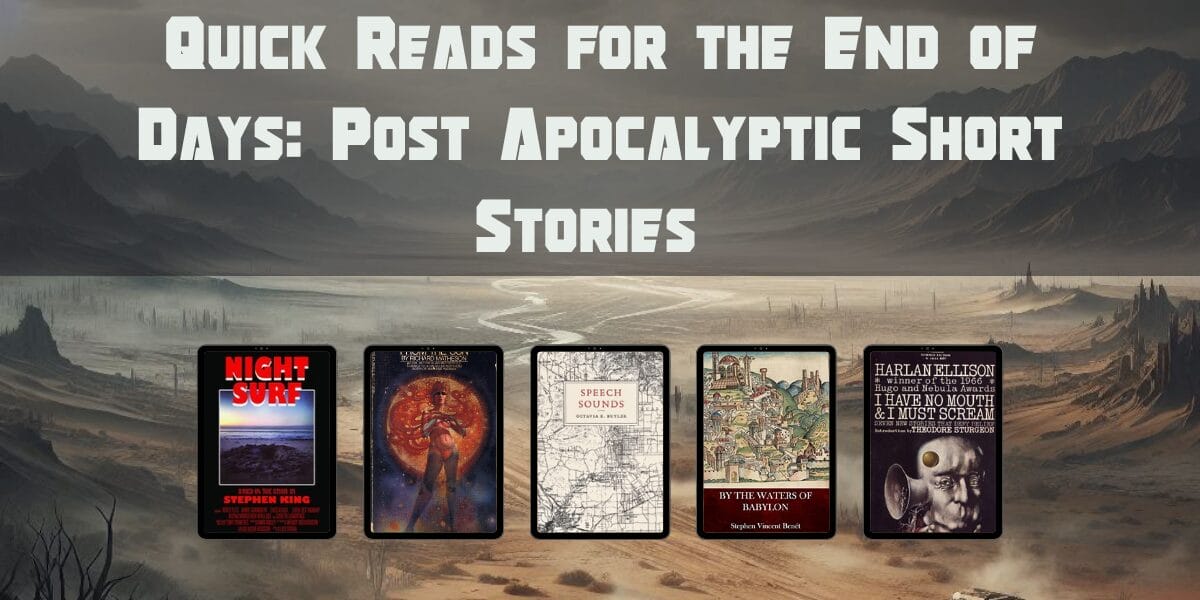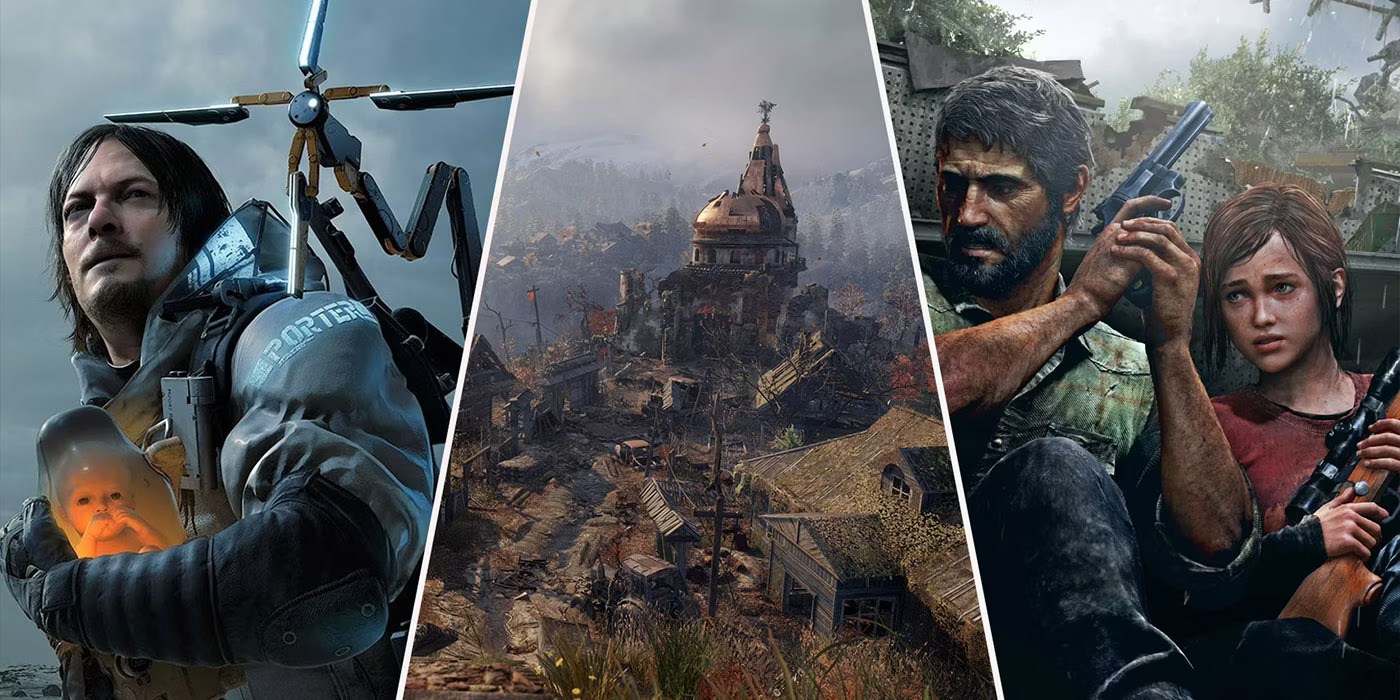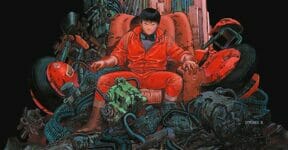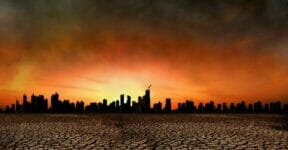Post-apocalyptic novels are great, but they’re not for everyone. Some people find long stories overwhelming and feel like they just don’t have the willingness to invest too much in complex plot lines full of complex details. Many young readers, especially high schoolers, are not too fond of thick end-of-the-world novels because their desks are already cluttered with high and mighty textbooks. What they need is a collection of concise narratives to quench the thirst for fictional narratives in the aftermath of a doomsday. Perhaps you’re just not that into reading, so getting it done as quickly as possible is the real aim here. No matter the reasoning, there are plenty of post-apocalyptic short stories to fit the bill. Before you hit the keyboard to Google a random title, look into the following titles first.
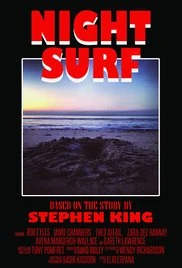
🌊 Night Surf by Stephen King (1969)
If you’ve never read The Stand before (or if you have), the Night Surf is the perfect companion to get a more complete picture of the story. While it’s not perfectly clear whether the events in the stories are related, you’re bound to discover that the narrative in Night Surf seems to happen at around the same time as The Stand. Here in the short story, a bunch of teenagers think they’re immune to a lethal virus known as A6 or Captain Trips, but of course the opposite is true.
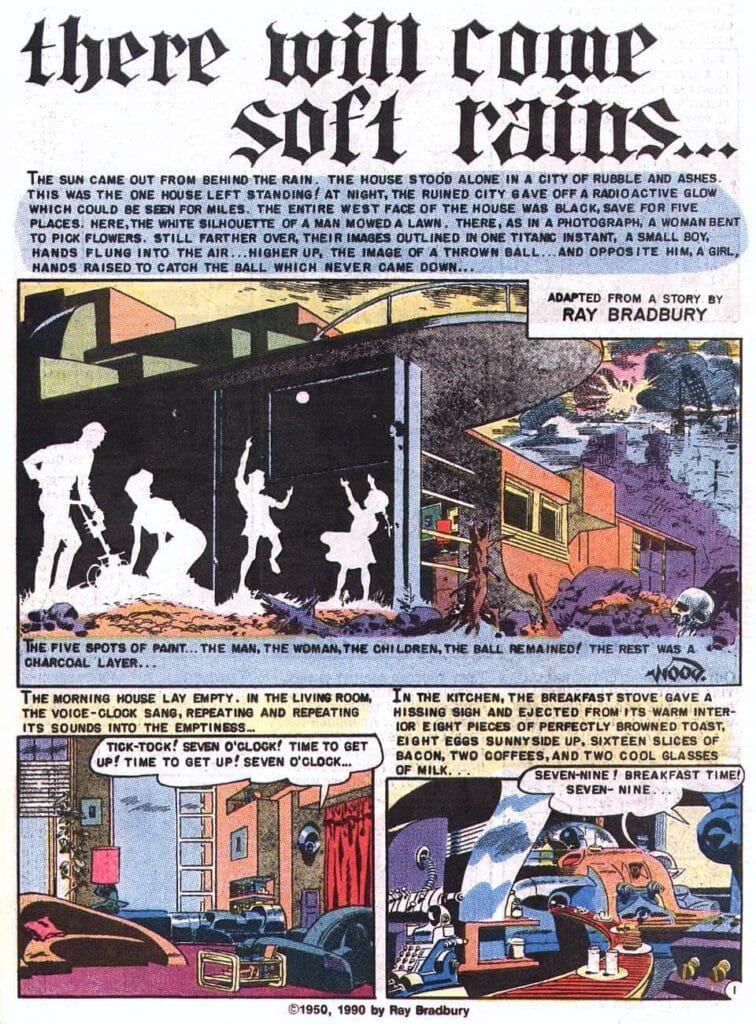
🏠 There Will Come Soft Rains by Ray Bradbury (1950)
The city of Allendale, California is now a barren wasteland thanks to a nuclear catastrophe. But since this is California we’re talking about, a smart home is left almost completely intact. The automated systems in the house still perform their scheduled routines like preparing breakfast, washing the dishes, wiping the floor clean, and addressing the now-absent homeowners like it’s just another day at the office. A nuclear disaster failed to disable the house, so nature sends a windstorm that blows a tree branch through its window and starts a fire. The only automated system that remains active is an AI clock that endlessly announces the time and date.
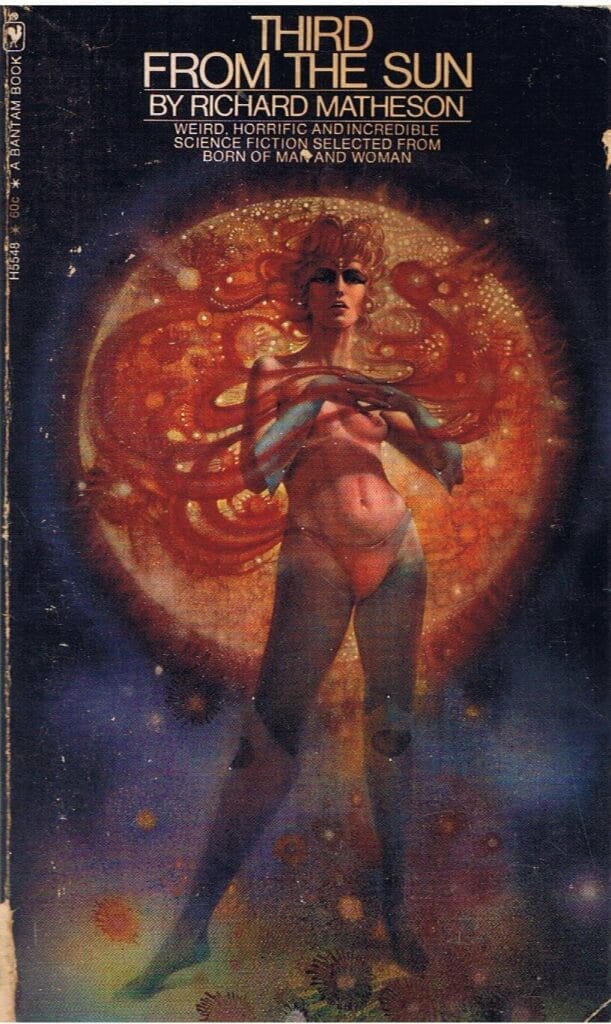
🚀 Third from the Sun by Richard Matheson (1955)
Things are getting out of control at home, and the environment is increasingly harmful to life. The entire members of an unnamed family plan to escape the planet with their neighbors on a spaceship. They have to look for another planet with a liveable atmosphere and a friendly moon that’s not too far away but not too close either. No one knows where this place is; the short story only mentions that it’s the third planet from the sun. If their destination is Earth, where are they now and why did they leave to begin with?
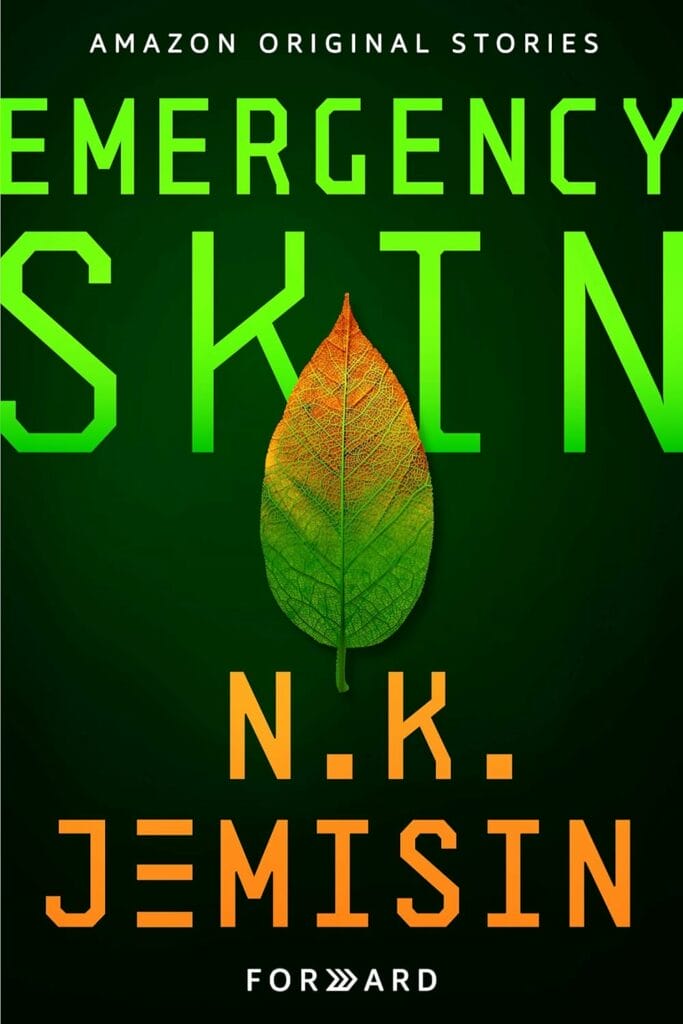
🛰️ Emergency Skin by N. K. Jemisin (2019)
Earth has been abandoned many years ago. The “Founders” along with their new human civilization now thrive on another planet without having to worry about climate change, nuclear fallout, pandemic, and the like. The only thing that bothers them is how ugly their skin has become, probably because of adaptation to the new world. To deal with this skin issue, they send an agent back to Earth to collect a sample of the HeLa culture. Once the agent returns, the sample can develop good-looking skin for the wealthy. The Founders warn the agent that Earth is only a remnant of its glory days; the inhabitants are ugly and everything is reduced to ruins. When the agent makes a landing, the agent sees only evidence to the contrary. Earth is as beautiful as ever, and the people are even prettier and kind. Some of them even immediately offer the HeLa culture to the agent with no suspicion whatsoever. But the AI, which has been planted in the agent’s brain by the Founders to maintain control, refuses to believe it.
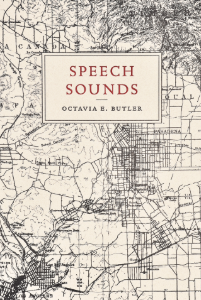
🧠 Speech Sounds by Octavia E. Butler (1983)
Los Angeles is in a post-apocalyptic time following a disease that killed most of its population. Pockets of survivors still exist in some places in the city, but they are either unable to read or mute. Rye lives alone; her husband and children died from the disease. She can’t read, which means she can speak, but then she comes to realize that it doesn’t do her any good at all. There’s no one to talk to, anyway. Throughout years of living alone in a city that’s almost entirely in a total breakdown, she has learned that revealing her ability to speak would only invite aggressive jealousy from the other survivors. She can speak, but she just doesn’t want to do it in front of anybody else.
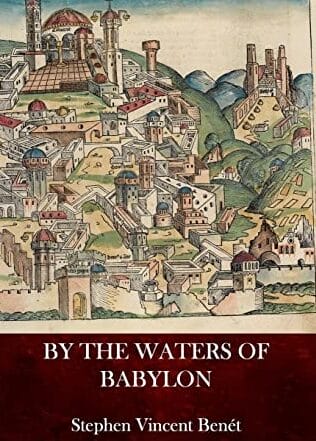
🏛️ By the Waters of Babylon by Stephen Vincent Benét (1937)
Told from the perspective of a tribal youth in a primitive future society, this story explores the ruins of a once-great civilisation, revealed to be modern New York City. As the narrator uncovers fragments of the past, themes of knowledge, taboo, and human progress emerge in this prescient tale.
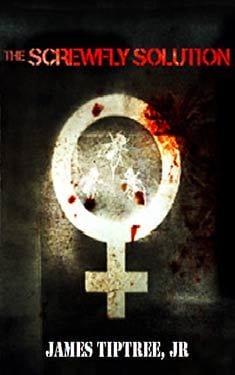
🧬 The Screwfly Solution by Raccoona Sheldon (1977)
An eerie and disturbing tale in which a biological phenomenon causes men to turn violent against women, leading to the collapse of civilisation. Blending apocalyptic horror with feminist commentary, it’s a chilling exploration of gender, control, and extinction.
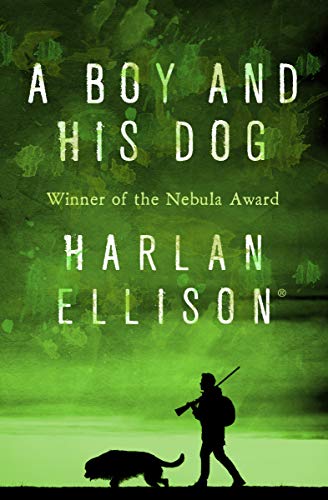
🐕 A Boy and His Dog by Harlan Ellison (1969)
Set in a bleak, lawless future, this story follows a telepathic dog and his teenage companion as they scavenge for food and survival. Darkly humorous and morally complex, it critiques survivalist machismo while depicting a desolate, cruel world after nuclear war.
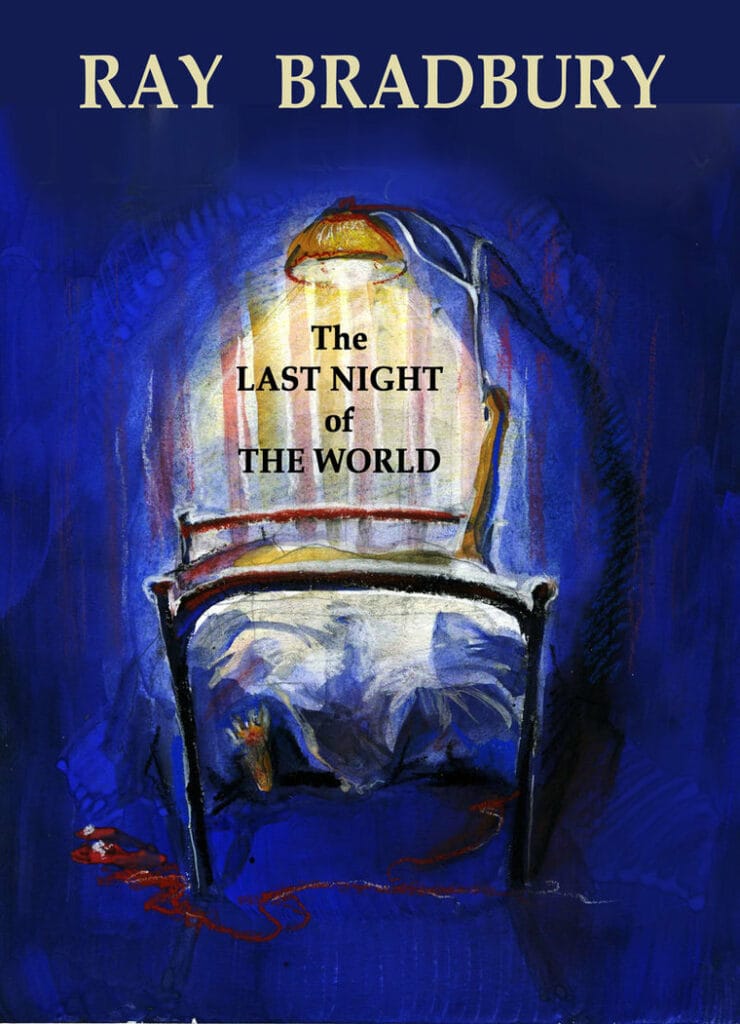
☕ The Last Night of the World by Ray Bradbury (1951)
In this quiet, reflective story, people around the world dream that the world will end the next day, and accept it calmly. It’s less about chaos and more about the psychology of endings, focusing on how ordinary people might face the end with dignity.
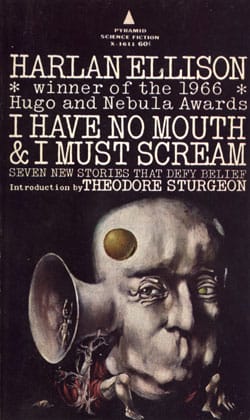
🔒 I Have No Mouth, and I Must Scream by Harlan Ellison (1967)
In a bleak future where a superintelligent AI called AM has destroyed humanity and kept five survivors alive to torture for eternity, this psychological horror story explores themes of suffering, power, and hopelessness. It’s both disturbing and brilliant, with a chilling tone that has made it a staple of post-apocalyptic literature and speculative fiction.
People Also Ask: The Expanse Book Series Edition
Before we finish up, let’s go through some of the most common questions people are asking about Post-Apocalyptic Short Stories:
❗ What is the biggest appeal of short stories?
Most people love the little build-up. Short stories often get straight to the point of the conflict and deliver quick resolution without too many complications in the way.
☢️ Recommended animated post-apocalyptic films?
Wizards (1977)
- Titan A.E. (2000)
- 9 (2009)
- Akira (1991)
- WALL·E (2008)
- Appleseed (2004)
📖 Post-apocalyptic comics you wouldn’t want to miss:
- Akira by Katsuhiro Otomo
- Black River by Josh Simmons
- Bloodstar by Richard Corben
- Kamandi, The Last Boy on Earth by Jack Kirby
- Lazarus by Greg Rucka & Michael Lark
- The “Lone Sloane” series by Philippe Druillet
- Nausicaä of the Valley of the Wind by Hayao Miyazaki
- Soft City by Pushwagner
- V for Vendetta by Alan Moore & David Lloyd
- Xenozoic Tales by Mark Schultz
💭 Final Thoughts
We think post-apocalyptic short stories are great to take quick glances at the hypothetical worlds where all of humanity has fallen to a threat they cannot endure. Dense narratives give you rapid tours to a mixture of fantastical, mesmerizing, terrifying, and sometimes downright bizarre and violent universes, and yet you’ll get right back to your worldly reality before bedtime.
📚 Fancy more ruined worlds, radioactive wastelands, and survivalist chaos?
Have a wander through our other post-apocalyptic articles. We’ve got rogue AIs, dusty highways, mutant creatures, and everything in between. Go on, treat yourself to something grim and gripping.

